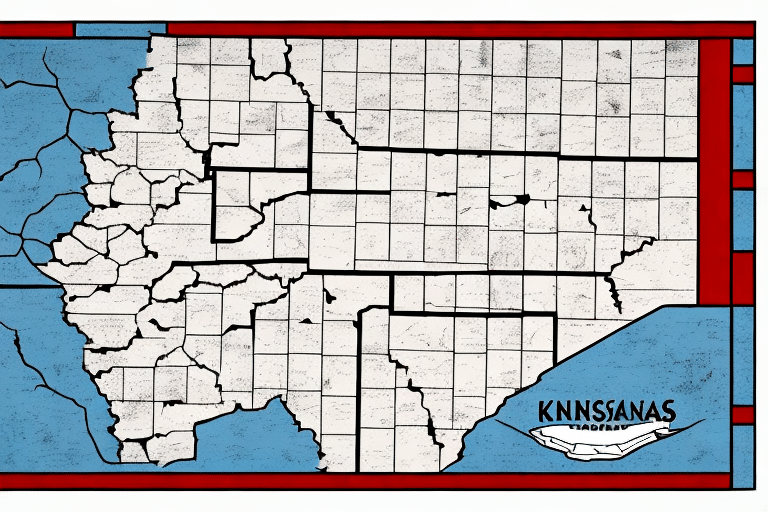Understanding Abandonment Laws in Kansas
Abandonment is a serious issue that can affect both property owners and local communities. Abandoned properties can pose risks to public safety, health, and welfare, and can also be an eyesore in the neighborhood. In Kansas, abandonment is defined as leaving property behind with no intention to reclaim it or care for it. Therefore, it is important for property owners and residents to be aware of the state’s laws on abandonment, which describe the legal consequences of abandoning property and the procedures for recovering abandoned items.
Laws and Regulations on Abandoned Property in Kansas
Definition of Abandonment under Kansas Law
Abandonment is the act of leaving behind property without any intention to maintain possession or care for the item. This can range from personal items to real estate properties. In Kansas, the law on abandonment generally refers to personal property, which includes any item that is movable and not attached to real estate. Examples of personal property that can be abandoned include vehicles, furniture, appliances, and clothing, among others.
Kansas law provides guidelines for determining whether property is considered abandoned, including the owner’s intent to relinquish their possession of the item and the length of time the item has been left unattended. To determine whether an item has been abandoned, the circumstances surrounding the item’s location, condition, and ownership must be examined.
It is important to note that abandonment of personal property does not necessarily mean that the owner has forfeited their ownership rights. In Kansas, the owner of abandoned property still has the right to reclaim their property, even if it has been left unattended for an extended period of time. However, if the owner does not reclaim their property within a certain timeframe, the property may be considered lost or abandoned and can be claimed by someone else.
Conditions for Property to be Considered Abandoned
Property is considered abandoned in Kansas when the owner has demonstrated an intent to relinquish ownership of the item, and there is no reasonable explanation for its abandonment. This can include leaving an item in a public place with no intention to retrieve it, failing to pay rent or storage fees, or leaving the item with a third party who has no authority to hold onto it. The length of time an item is abandoned can also be a factor in determining whether it can be classified as such.
It is important to note that some property may be deemed abandoned under certain circumstances, even if the owner has not explicitly stated an intent to abandon it. For example, if a tenant moves out of a rental property and leaves items behind, those items may be considered abandoned after a certain period of time, depending on the terms of the lease agreement. Additionally, property left behind after a foreclosure or eviction may also be considered abandoned if the former owner or tenant does not claim it within a certain timeframe. In these cases, the new property owner or landlord may have the right to dispose of the abandoned items as they see fit.
Legal Consequences of Abandoning Property in Kansas
Abandoning property in Kansas can have legal consequences for the owner. If property is abandoned on someone else’s land, the owner can be liable for any damages caused by the item. Additionally, if the abandoned property is found to be hazardous or a public nuisance, the owner can be fined or face other legal consequences.
It is also important to note that abandoning property does not necessarily terminate ownership rights. However, if the abandoned item is not claimed within a certain period of time, it may be subject to seizure or disposition by law enforcement or local government authorities. Furthermore, abandoning property can also have financial consequences for the owner. If the abandoned property has any outstanding debts or taxes, the owner may still be responsible for paying them. In some cases, the government may even place a lien on the owner’s other assets to collect the debt.
Procedures for Handling Abandoned Property in Kansas
Recovering Abandoned Property
If you believe that your property has been abandoned and want to reclaim it, there are certain procedures you must follow in Kansas. First, you should attempt to locate the rightful owner of the abandoned property. If you are unable to locate the owner, you may be able to claim the item as your own, although you may be required to provide proof of ownership or pay a fee to the local government.
If the abandoned property is in the possession of the local government or law enforcement agency, you may be required to file a claim in order to reclaim it. The claim will typically require you to provide proof of ownership and may include a fee for storing the abandoned item. Once your claim is approved, you will generally be required to pick up the item within a certain period of time.
Handling Abandoned Vehicles
Abandoned vehicles can be particularly problematic in Kansas, as they can pose safety hazards and be expensive to remove. In general, a vehicle is considered abandoned if it has been left unattended for a certain period of time, is parked in a prohibited location, or is obstructing traffic or public access. If you suspect that a vehicle has been abandoned, you should contact local law enforcement or the Kansas Department of Transportation. They will typically investigate the vehicle and attempt to locate the owner. If the owner is not located, the vehicle may be towed and impounded, after which the owner will generally be required to pay a fee to reclaim the vehicle.
Handling Abandoned Animals
Abandoned animals in Kansas are subject to state animal welfare laws, which aim to protect animals from abuse and neglect. If you find an abandoned animal, you should contact local animal control or law enforcement, who will typically investigate the situation and attempt to locate the owner. If the animal is not claimed within a certain period of time, it may be placed in a foster home, adopted, or transferred to a local animal shelter. In some cases, the animal may be euthanized if it is deemed to be suffering or dangerous. It is important to note that abandoning an animal is a criminal offense in Kansas, and can result in fines and other legal consequences.
The Role of Local Governments and Authorities
Local governments in Kansas play a crucial role in enforcing abandonment laws and regulations. They are responsible for investigating allegations of abandoned property, issuing notices to property owners, and storing abandoned items in a secure location. Local governments also have the authority to dispose of abandoned property that is not claimed within a certain period of time.
In some cases, local governments may seek assistance from law enforcement or other agencies to enforce abandonment laws. This can involve inspecting properties for abandoned items, issuing fines or citations, and prosecuting individuals who violate abandonment laws.
Preventing Violations and Common Misconceptions
How to Avoid Violating Abandonment Laws in Kansas
To avoid violating abandonment laws in Kansas, property owners and residents should take steps to properly care for their property. This includes storing items in a secure location, paying rent or storage fees, and properly disposing of any items that are no longer needed. Property owners should also ensure that any items left on their property are not hazardous to public safety or welfare.
In cases where an item must be left unattended for an extended period of time, property owners should take steps to notify neighbors or local authorities of the situation. This can help prevent misunderstandings or allegations of abandonment.
Common Misconceptions About Abandonment Laws in Kansas
There are several common misconceptions about abandonment laws in Kansas that are important to address. For example, many people believe that leaving an item on public property automatically constitutes abandonment. However, the circumstances surrounding the item’s location, condition, and ownership must be examined to determine whether it can be classified as abandoned.
Another common misconception is that abandoning property immediately terminates ownership rights. While abandoning property can result in the loss of ownership rights, the item must be properly disposed of or seized by local authorities before ownership rights are terminated.
Seeking Legal Assistance
If you are facing issues related to abandonment in Kansas, it may be helpful to seek legal assistance. An attorney who specializes in property law or civil litigation can help you understand your rights and obligations under Kansas law and can assist you with navigating the process of recovering abandoned property or defending against allegations of abandonment.
However, in many cases, avoiding abandonment issues in the first place is the best course of action. By properly caring for your property and ensuring that it does not pose a risk to public safety or welfare, you can avoid legal issues related to abandonment and maintain ownership of your property.








